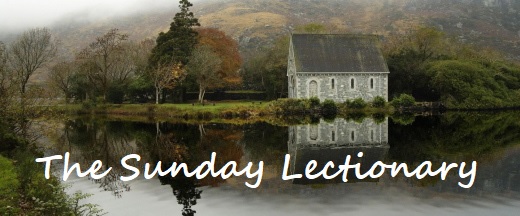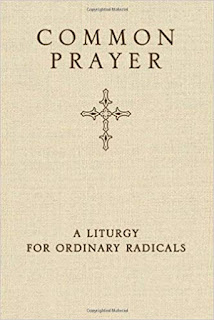 |
| Fifth Sunday in Lent Ezekiel 37:1-14; Psalm 130; Romans 8:6-11; John 11:1-45 |
The Sunday Lectionary Readings
SUNDAY, March 29, 2020 — Fifth Sunday in Lent
(Revised Common Lectionary Year A)
Come Out! On the Breath of God
Ezekiel 37:1-14; Psalm 130; Romans 8:6-11; John 11:1-45
Opening Statement
Hope is not only a life and death matter, hope is a life in death matter. Hope finds its greatest challenge, and shines its greatest light, when life stands in the face of death and affirms that God remains trustworthy. Ezekiel is called to prophesy such hope in a valley of dried bones and lost dreams. The psalmist proclaims hope from the depths, as one who waits for the gift of a morning yet to dawn. And Jesus, stricken with a grief born of love, speaks hope into Lazarus’s tomb, calling his friend forth as a sign of God’s glory and of our hope.
Opening Prayer
(adapted from Psalm 130, John 11)
God of life, present and promised, you are the One to whom we call: for you are the One who hears, and you are the One who acts, bringing us new life with your grace and love and power. Lead us in our time of worship, that we may be prepared to follow your lead in places where life is at risk—places where hope seems far away, places where dreams die during sleep. Help us live the teachings we proclaim through Jesus Christ our Lord. Amen.
The Collect
(from the Book of Common Prayers)
Almighty God, you alone can bring into order the unruly wills and affections of sinners: Grant your people grace to love what you command and desire what you promise; that, among the swift and varied changes of the world, our hearts may surely there be fixed where true joys are to be found; through Jesus Christ our Lord, who lives and reigns with you and the Holy Spirit, one God, now and for ever. Amen.
Prayer of Confession
(adapted from Ezekiel 37, Psalm 130, John 11)
Forgive us, O God, when we see the world through rose-colored glasses rather than as it really is, much less the way you seek it to be. Forgive us, Holy One, when we forsake lively and risky faith calling us to be agents of change in our world for the bland conviction that all will be well. Renew us with your grace and ground us with your Spirit, that we might be empowered to live, in word and deed, as testimonies to the power of your love over the grave. In Jesus Christ, we pray. Amen.
Words of Assurance
(adapted from Ezekiel 37, Romans 8)
The God we serve is the God of life, the God of hope, the God of new beginnings—even for dried-up bones and shattered dreams. That rattling of bones in Ezekiel’s vision may be heard as the shackles that once held us down in fear, sin, prejudice, and guilt. God defies these deadly entanglements with the power of life. This we trust, and by this we live. Thanks be to God!
Prayer of the Day
Almighty God, your Son came into the world to free us all from sin and death. Breathe upon us the power of your Spirit, that we may be raised to new life in Christ and serve you in righteousness all our days, through Jesus Christ, our Savior and Lord, who lives and reigns with you and the Holy Spirit, one God, now and forever. Amen.
First Reading
The dry bones of Israel
37:1 The hand of the Lord was on me, and he brought me out by the Spirit of the Lord and set me in the middle of a valley; it was full of bones. 2 He led me back and forth among them, and I saw a great many bones on the floor of the valley, bones that were very dry. 3 He asked me, “Son of man, can these bones live?”
I said, “Sovereign Lord, you alone know.”
4 Then he said to me, “Prophesy to these bones and say to them, ‘Dry bones, hear the word of the Lord! 5 This is what the Sovereign Lord says to these bones: I will make breath enter you, and you will come to life. 6 I will attach tendons to you and make flesh come upon you and cover you with skin; I will put breath in you, and you will come to life. Then you will know that I am the Lord.’”
7 So I prophesied as I was commanded. And as I was prophesying, there was a noise, a rattling sound, and the bones came together, bone to bone. 8 I looked, and tendons and flesh appeared on them and skin covered them, but there was no breath in them.
9 Then he said to me, “Prophesy to the breath; prophesy, son of man, and say to it, ‘This is what the Sovereign Lord says: Come, breath, from the four winds and breathe into these slain, that they may live.’” 10 So I prophesied as he commanded me, and breath entered them; they came to life and stood up on their feet—a vast army.
11 Then he said to me: “Son of man, these bones are the people of Israel. They say, ‘Our bones are dried up and our hope is gone; we are cut off.’ 12 Therefore prophesy and say to them: ‘This is what the Sovereign Lord says: My people, I am going to open your graves and bring you up from them; I will bring you back to the land of Israel. 13 Then you, my people, will know that I am the Lord, when I open your graves and bring you up from them. 14 I will put my Spirit in you and you will live, and I will settle you in your own land. Then you will know that I the Lord have spoken, and I have done it, declares the Lord.’”
Mercy and redemption
1 Out of the depths I cry to you, Lord;
2 Lord, hear my voice.
Let your ears be attentive
to my cry for mercy.
3 If you, Lord, kept a record of sins,
Lord, who could stand?
4 But with you there is forgiveness,
so that we can, with reverence, serve you.
5 I wait for the Lord, my whole being waits,
and in his word I put my hope.
6 I wait for the Lord
more than watchmen wait for the morning,
more than watchmen wait for the morning.
7 Israel, put your hope in the Lord,
for with the Lord is unfailing love
and with him is full redemption.
8 He himself will redeem Israel
from all their sins.
Second Reading
Life in the Spirit
8:6 The mind governed by the flesh is death, but the mind governed by the Spirit is life and peace. 7 The mind governed by the flesh is hostile to God; it does not submit to God’s law, nor can it do so. 8 Those who are in the realm of the flesh cannot please God.
9 You, however, are not in the realm of the flesh but are in the realm of the Spirit, if indeed the Spirit of God lives in you. And if anyone does not have the Spirit of Christ, they do not belong to Christ. 10 But if Christ is in you, then even though your body is subject to death because of sin, the Spirit gives life because of righteousness. 11 And if the Spirit of him who raised Jesus from the dead is living in you, he who raised Christ from the dead will also give life to your mortal bodies because of his Spirit who lives in you.
Gospel Acclamation
(John 11:25, 26)
Jesus said, “I am the resurrection and the life. The one who believes in me will live, even though they die.”
In the midst of a valley filled with bones, amidst the stench of a tomb’s death and decay, a voice cries out in the name of life. And in holy mystery, life comes forth. These are the stories we are told. But are these the stories we will trust? Are these the stories we will live by?
The Gospel
The raising of Lazarus
11:1 Now a man named Lazarus was sick. He was from Bethany, the village of Mary and her sister Martha. 2 (This Mary, whose brother Lazarus now lay sick, was the same one who poured perfume on the Lord and wiped his feet with her hair.) 3 So the sisters sent word to Jesus, “Lord, the one you love is sick.”
4 When he heard this, Jesus said, “This sickness will not end in death. No, it is for God’s glory so that God’s Son may be glorified through it.” 5 Now Jesus loved Martha and her sister and Lazarus. 6 So when he heard that Lazarus was sick, he stayed where he was two more days, 7 and then he said to his disciples, “Let us go back to Judea.”
8 “But Rabbi,” they said, “a short while ago the Jews there tried to stone you, and yet you are going back?”
9 Jesus answered, “Are there not twelve hours of daylight? Anyone who walks in the daytime will not stumble, for they see by this world’s light. 10 It is when a person walks at night that they stumble, for they have no light.”
11 After he had said this, he went on to tell them, “Our friend Lazarus has fallen asleep; but I am going there to wake him up.”
12 His disciples replied, “Lord, if he sleeps, he will get better.” 13 Jesus had been speaking of his death, but his disciples thought he meant natural sleep.
14 So then he told them plainly, “Lazarus is dead, 15 and for your sake I am glad I was not there, so that you may believe. But let us go to him.”
16 Then Thomas (also known as Didymus) said to the rest of the disciples, “Let us also go, that we may die with him.”
17 On his arrival, Jesus found that Lazarus had already been in the tomb for four days. 18 Now Bethany was less than two miles from Jerusalem, 19 and many Jews had come to Martha and Mary to comfort them in the loss of their brother. 20 When Martha heard that Jesus was coming, she went out to meet him, but Mary stayed at home.
21 “Lord,” Martha said to Jesus, “if you had been here, my brother would not have died. 22 But I know that even now God will give you whatever you ask.”
23 Jesus said to her, “Your brother will rise again.”
24 Martha answered, “I know he will rise again in the resurrection at the last day.”
25 Jesus said to her, “I am the resurrection and the life. The one who believes in me will live, even though they die; 26 and whoever lives by believing in me will never die. Do you believe this?”
27 “Yes, Lord,” she replied, “I believe that you are the Messiah, the Son of God, who is to come into the world.”
28 After she had said this, she went back and called her sister Mary aside. “The Teacher is here,” she said, “and is asking for you.” 29 When Mary heard this, she got up quickly and went to him. 30 Now Jesus had not yet entered the village, but was still at the place where Martha had met him. 31 When the Jews who had been with Mary in the house, comforting her, noticed how quickly she got up and went out, they followed her, supposing she was going to the tomb to mourn there.
32 When Mary reached the place where Jesus was and saw him, she fell at his feet and said, “Lord, if you had been here, my brother would not have died.”
33 When Jesus saw her weeping, and the Jews who had come along with her also weeping, he was deeply moved in spirit and troubled. 34 “Where have you laid him?” he asked.
“Come and see, Lord,” they replied.
35 Jesus wept.
36 Then the Jews said, “See how he loved him!”
37 But some of them said, “Could not he who opened the eyes of the blind man have kept this man from dying?”
38 Jesus, once more deeply moved, came to the tomb. It was a cave with a stone laid across the entrance. 39 “Take away the stone,” he said.
“But, Lord,” said Martha, the sister of the dead man, “by this time there is a bad odor, for he has been there four days.”
40 Then Jesus said, “Did I not tell you that if you believe, you will see the glory of God?”
41 So they took away the stone. Then Jesus looked up and said, “Father, I thank you that you have heard me. 42 I knew that you always hear me, but I said this for the benefit of the people standing here, that they may believe that you sent me.”
43 When he had said this, Jesus called in a loud voice, “Lazarus, come out!” 44 The dead man came out, his hands and feet wrapped with strips of linen, and a cloth around his face.
Jesus said to them, “Take off the grave clothes and let him go.”
45 Therefore many of the Jews who had come to visit Mary, and had seen what Jesus did, believed in him.
Here end the Readings
Click HERE to read today’s Holy Gospel Lesson message
The Nicene Creed
We believe in one God, the Father, the Almighty, maker of heaven and earth, of all that is, seen and unseen.
We believe in one Lord, Jesus Christ, the only Son of God, eternally begotten of the Father, God from God, Light from Light, true God from true God, begotten, not made, of one Being with the Father. Through him all things were made. For us and for our salvation he came down from heaven; by the power of the Holy Spirit he became incarnate from the Virgin Mary, and was made man. For our sake he was crucified under Pontius Pilate; he suffered death and was buried. On the third day he rose again in accordance with the Scriptures; he ascended into heaven and is seated at the right hand of the Father. He will come again in glory to judge the living and the dead, and his kingdom will have no end.
We believe in the Holy Spirit, the Lord, the giver of life, who proceeds from the Father and the Son. With the Father and the Son he is worshiped and glorified. He has spoken through the Prophets. We believe in one holy catholic and apostolic Church. We acknowledge one baptism for the forgiveness of sins. We look for the resurrection of the dead, and the life of the world to come. Amen.
Benediction
Come out! Jesus commands, and calls us from the tombs of our existence into the brightness of a new day.
Come out! Jesus cries, and unbinds us from the chains of our past.
Come out! Jesus calls, and entices us into a world filled with grace and possibility.
So:
Go out! Into a world that needs our life, our breath, our spirit!
Go out! Into a world that needs the Spirit of God, carried on our lips and in our loving arms.
Go out! Into the world to live as God’s resurrected people!
Go out: and go on the breath of God’s holy wind!
Closing Prayer
Lord, thank you that we are a family in Christ. Help us to share his love and legacy with everyone that we encounter this week. May we lavish Christ’s abounding goodness upon our families, friends and colleagues. Holy Spirit, come and equip us in our workplace, guide us in our school life, and inspire us in our neighborhood. May we be your hands and feet to the needy, your words of affirmation to the oppressed and your arms of comfort to the lonely.
Thank you for choosing to use us to bring your kingdom here on earth. Amen.
Optional parts of the readings are set off in [square brackets.]
The Bible texts of the Old Testament, Epistle, and Gospel lessons are from The Holy Bible, New International Version®, NIV® Copyright ©1973, 1978, 1984, 2011 by Biblica, Inc.® Used by permission. All rights reserved worldwide.
The Daily Lectionary for SUNDAY, March 29, 2020 — Fifth Sunday in Lent
Come Out! On the Breath of God
Ezekiel 37:1-14; Psalm 130; Romans 8:6-11; John 11:1-45








